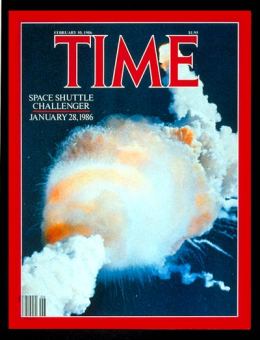
It was supposed to be the entrance into a new frontier in space travel: astronaut Christa McAuliffe was about to become the first civilian to go into space, bringing the stars within the symbolic reach of any average American. But just minutes after its launch on Jan. 28, 1986, the Space Shuttle Challenger exploded a few miles above Cape Canaveral. Millions of television viewers watched, aghast, as the shuttle burst into a giant fireball, its solid rocket boosters hurtling off to either side. The nation mourned the loss of seven brave astronauts; as TIME’s cover story described, none more so than McAuliffe:
Americans had soared into space 55 times over 25 years, and their safe return came to be taken for granted. An age when most anyone, given a few months’ training, could go along for a safe ride seemed imminent. Christa McAuliffe was the pioneer and the vibrant symbol of this amazing new era of space for Everyman. An ebullient high school social-studies teacher from Concord, N.H., she was to be the first ordinary citizen to be shot into space, charged with showing millions of watchful schoolchildren how wonderful it could be. She was bringing every American who had ever been taught by a Mrs. McAuliffe into this new era with her. It was an era that lasted only 73 seconds.
Read the Cover Story: “They Slipped the Surly Bonds of Earth to Touch the Face of God.”





